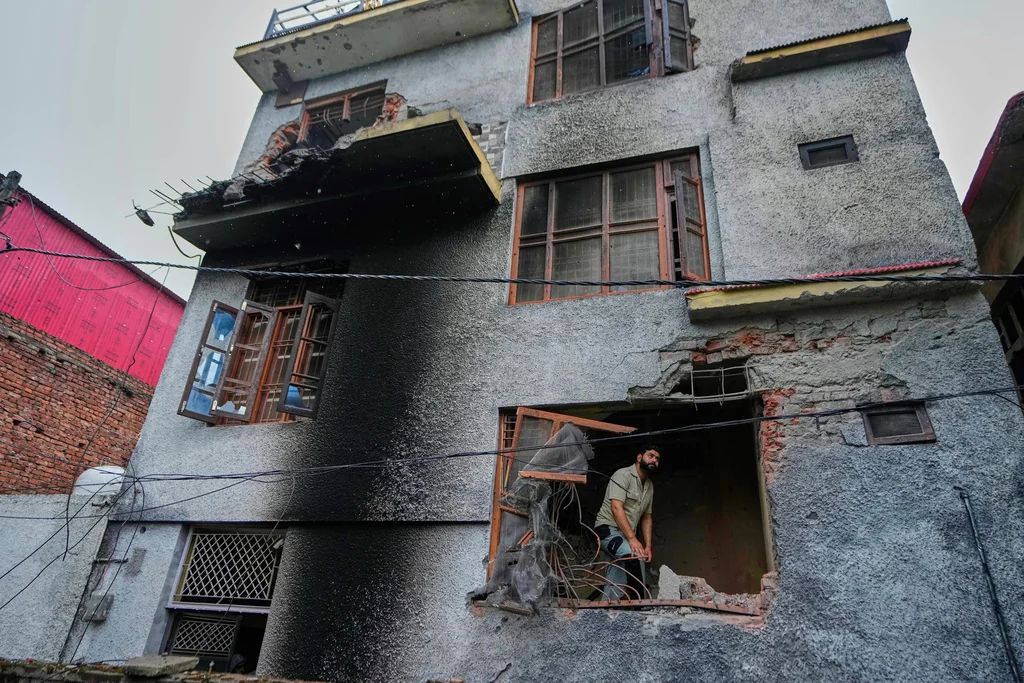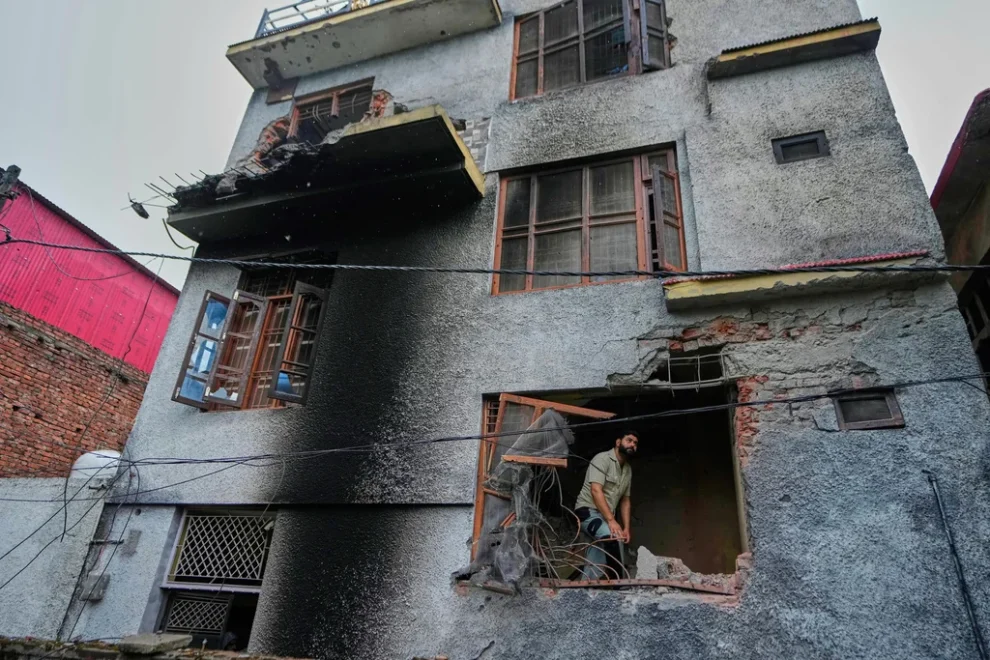Vice President JD Vance urged India and Pakistan to deescalate tensions as both countries launched mass drone attacks against each other, but the U.S. leader declined to intervene.
The burgeoning conflict between India and Pakistan escalated significantly on Thursday, with both countries accusing each other of launching mass kamikaze drone strikes. Secretary of State Marco Rubio spoke with senior figures in India and Pakistan in the aftermath, urging them to deescalate as the conflict rapidly approaches the worst violence between the two since the 1999 Kargil War.

In a Thursday interview with Fox News, Vance also urged deescalation but ardently declared the conflict outside of U.S. interests.
“What we can do is try to encourage these folks to deescalate a little bit, but we’re not going to get involved in the middle of a war that’s fundamentally none of our business and has nothing to do with America’s ability to control it,” he said.
Rubio spoke on the phone with Indian External Affairs Minister Subrahmanyam Jaishankar and Pakistani Prime Minister Muhammad Shehbaz Sharif on Thursday. The State Department readouts on both calls were nearly identical, saying Rubio called for “immediate deescalation” and expressed support for direct dialogue between New Delhi and Islamabad. The statements slightly differed in the added message, which appeared to slightly favor India.
The readout for the call with Jaishankar said Rubio “reiterated his condolences for the horrific terrorist attack in Pahalgam and reaffirmed the United States’ commitment to work with India in the fight against terrorism,” while that with Shehbaz said he “expressed sorrow for the reported loss of civilian lives in the current conflict. He reiterated his calls for Pakistan to take concrete steps to end any support for terrorist groups.”
On Thursday, Pakistani Inter Services Public Relations Lt. Gen Ahmed Sharif Chaudhry said his country had neutralized 25 Israeli-made Harop drones that attacked military sites throughout the country, including in Karachi and Lahore.
The Harop drone is among roughly $2.9 billion of weapons imported from Israel over the past decade, according to Dawn newspaper. The kamikaze drone is vaunted for its performance in the 2020 Second Nagorno-Karabakh War by Azerbaijan, which used them to decimate Armenia’s military and quickly gain air supremacy. The Harop and Turkish Bayraktar drones are widely credited with being the decisive factor in deciding the war in Azerbaijan’s favor.
Pakistan published photos of debris from the drones, showing them as Israeli-made.
The drone attacks against Lahore led the U.S. consulate to issue a warning urging its staff to shelter in place.
The ISPR’s statement claimed the “cowardly” attack was made “in panic,” in response to India’s losses of three to five fighter jets in an air battle on the first day of hostilities.
India, meanwhile, claimed success in the attack, saying it “neutralized” an air defense system in Lahore. It also claimed to have shot down Pakistani drones launched against Indian targets in Kashmir.
In addition to artillery fire exchanged along the line of contact in Kashmir, drone and missile strikes have been reported in nearly a dozen cities in India and Pakistan since early in the morning Wednesday. Open source intelligence analyst Damien Symon recorded Indian drone or missile attacks against ten cities in Pakistan and Pakistani drone or missile attacks against 15 cities in India.
Both sides have a penchant for denying their own attacks or minimizing damage from enemy attacks, aside from civilian casualties.
Pakistan and India, longtime rivals since their independence in 1947, have ramped up hostile rhetoric. A new nationalistic music video has already been produced by Pakistanis, “We are ready for the fight,” showcasing Pakistani troops and military hardware to lyrics expressing a willingness for war.
INDIA LAUNCHES MISSILE ATTACK AGAINST PAKISTAN
Clips of coverage of the war on Indian and Pakistani news stations have gone viral on social media, with spirited pundits speaking alongside graphics of explosions and military hardware.
Violence in the conflict has already surpassed the flare-up in 2019, reaching levels not seen since 1999. That year’s Kargil War was the only time in history that two nuclear-armed powers engaged in a conventional war, a title that could soon be joined by the conflict.






















